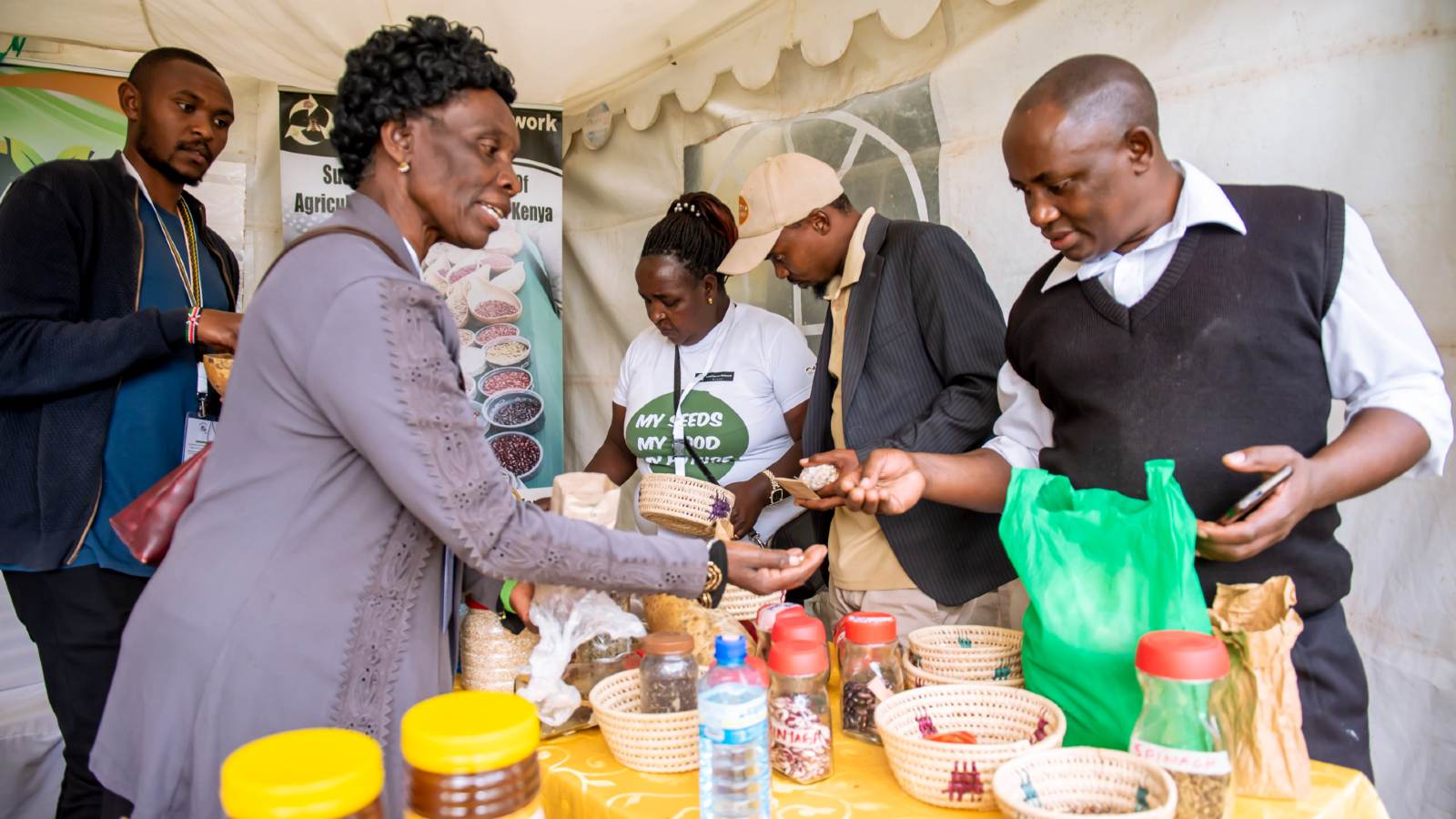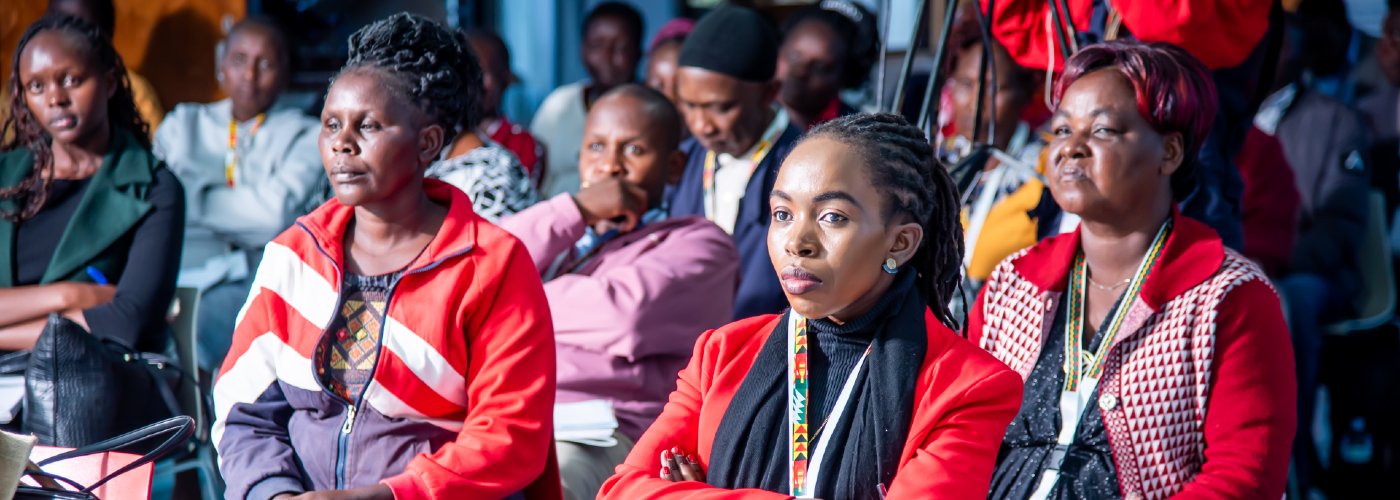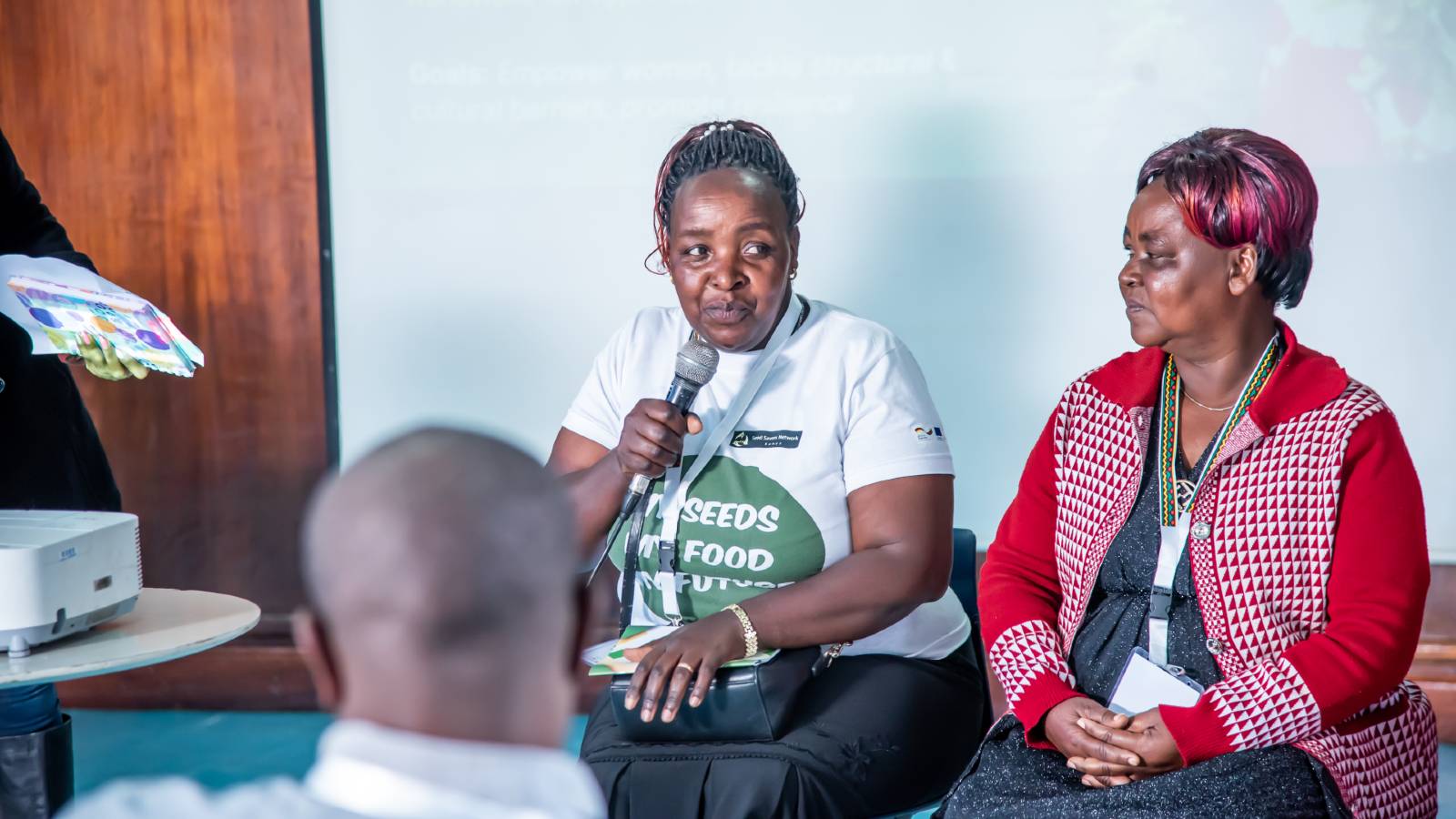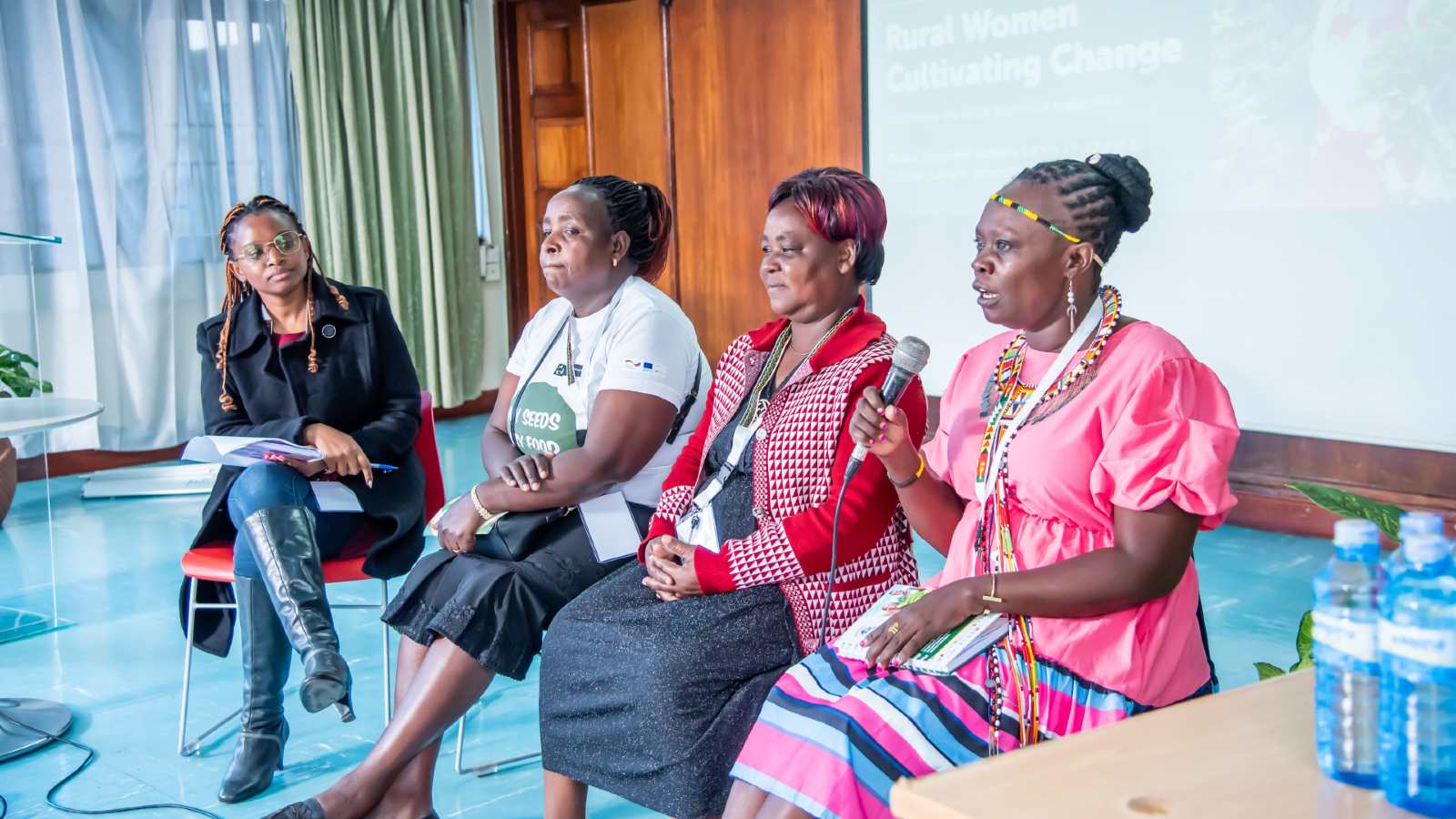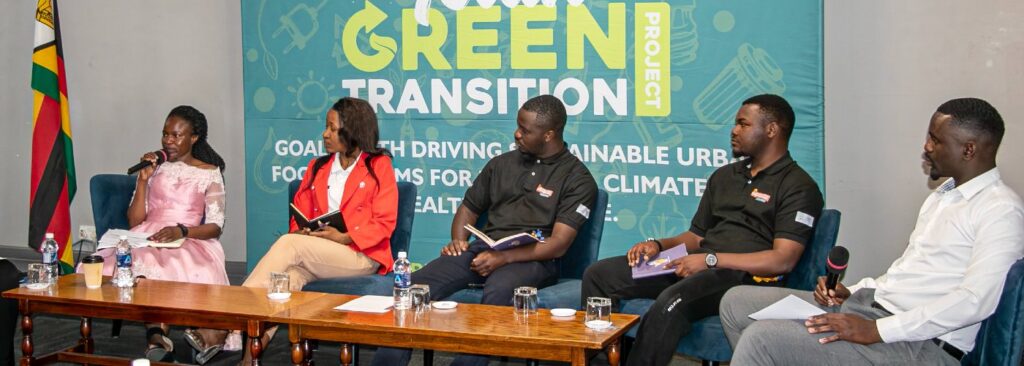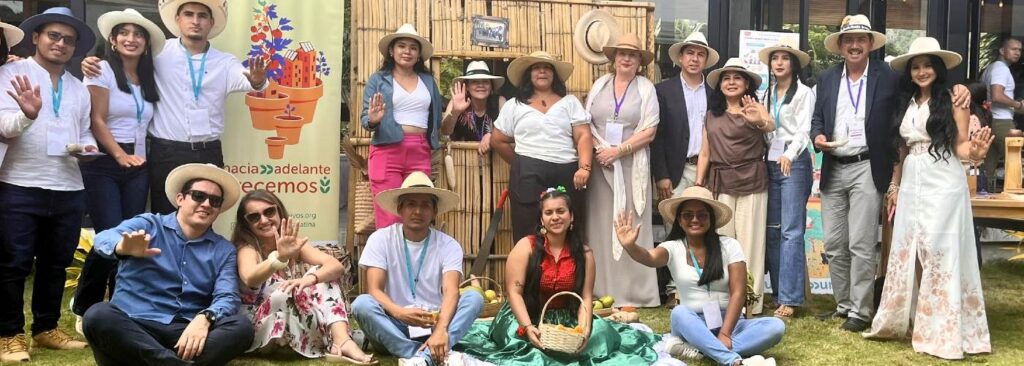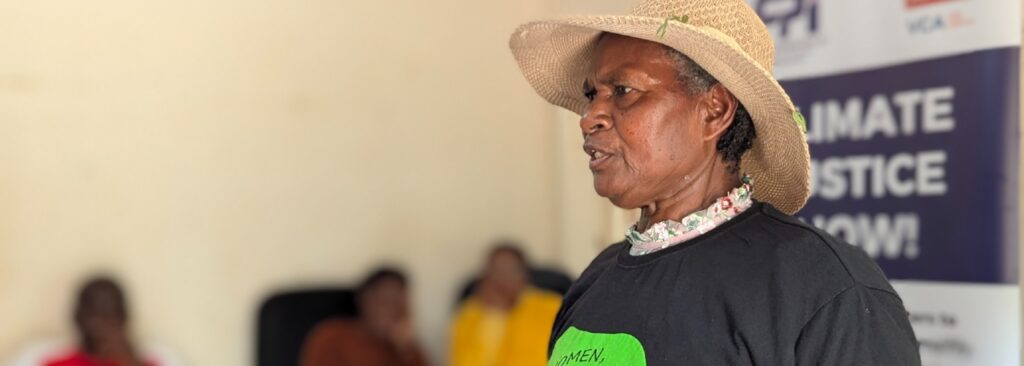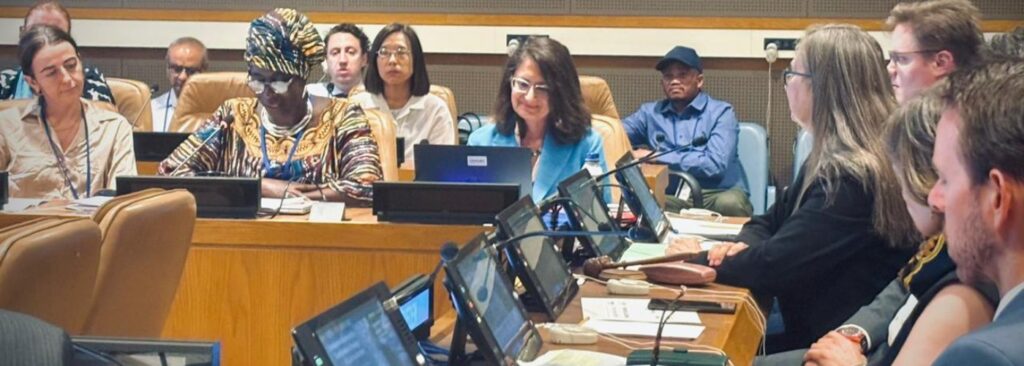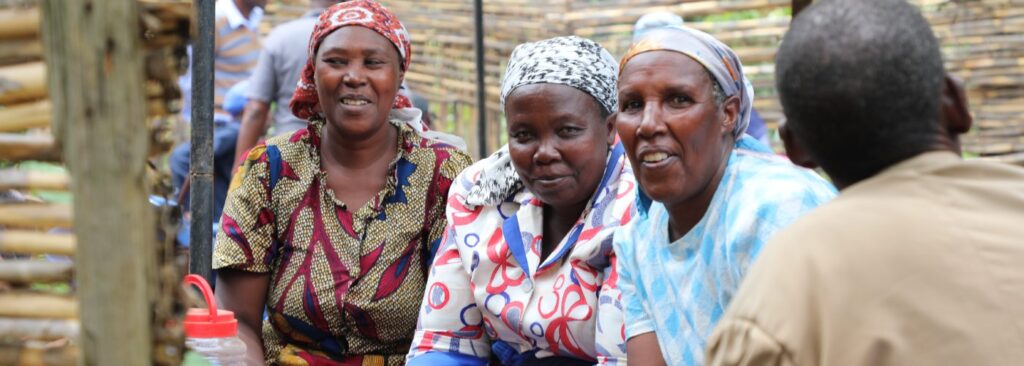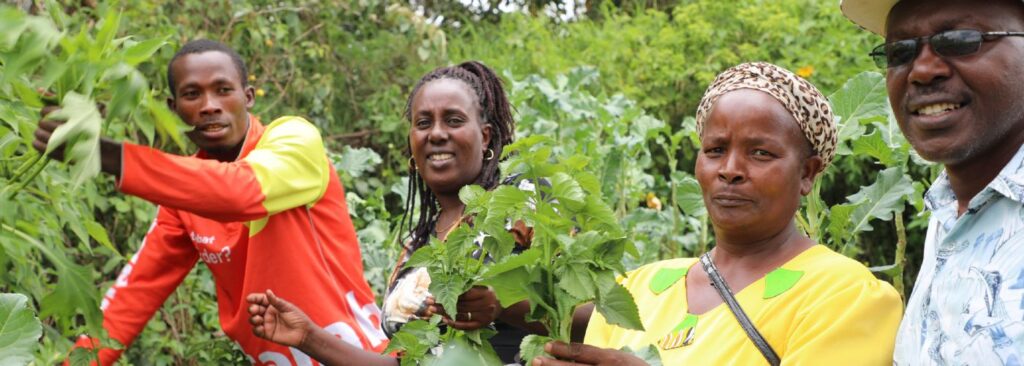A growing consensus is emerging within Kenya’s agricultural revolution: agroecology is not just a farming method, but a movement for justice, sustainability, and food sovereignty. This vision came alive during the 2nd National Agroecology Symposium held in Nairobi on July 10 and 11, 2025, which brought together over 450 participants, including farmers, civil society actors, government officials, private sector stakeholders, and researchers. Unlike many conferences where panels are dominated by experts speaking from policy papers and podiums, this year’s symposium took the bold step of giving center stage to those with lived experience: women farmers.
Through the Rural Women Cultivating Change (RWCC) program, Hivos supports 15 women farmers from Nakuru, Kitui, and Baringo counties who attended. But they were not just attendees; they were storytellers, exhibitors, and advocates for change. During the side event organized in partnership with GROOTS Kenya and Seed Savers Network, these women moved hearts, not with theoretical jargon, but with narratives rooted in the language of the land, the soil they till, the seeds they save, and the families they feed.
“Agroecology is an accelerator for women towards land access, use, and eventually ownership,” said Chebet Chirchir, Program Officer at Hivos, in her opening remarks. “And we are happy to have the women here to share their stories in a language they understand; the language of their soil, the soil they cultivate. We are truly cultivating change.”
From rocky soil to rooted ownership
Beatrice Wangui Mwangi (54), Gilgil, Nakuru County
Gilgil, nestled in Nakuru County, is a semi-arid area with rocky terrain and unpredictable rainfall. It’s the kind of place where farming requires grit, strategy, and community – qualities that Beatrice Wangui Mwangi embodies fully. “My name is Beatrice Wangui Mwangi from Langalanga in Gilgil, Nakuru County. I’m a smallholder farmer and a proud custodian of indigenous knowledge. I founded our community seed bank, where we preserve and distribute indigenous seeds, precious genetic material that’s often overlooked in modern farming,” she began.
“In fact, we literally bought soil to start our kitchen gardens,” she added with a smile. “Now we sell indigenous vegetables, and they fetch even better prices than the other crops. Saving seeds has not only given us food security, but it’s also become our source of livelihood.”
What began with a small idea grew into a thriving enterprise. With support from Seed Savers and market linkages, Beatrice and her group formed a Savings and Credit Cooperative. Little by little, she saved consistently. Today, she owns her own piece of land, registered in her name.
“There is no big or small money, it’s how you plan for it,” she said. “Now, no one can dictate how I use my land.”
Her story is not just one of resilience but of redefinition, moving from a landless woman to a landowner, leader, and example in her community.
Turning drought into demonstration
Esther Musali Musimi (45), Kitui East
Kitui County is no stranger to the wrath of climate change. Seasonal rivers dry up fast. A missed rainy season here spells disaster: no crops, no water, no livestock feed. For Esther Musali Musimi, a smallholder farmer and community trainer, this reality is deeply personal.
“When there’s no food, children don’t go to school. Everything stalls,” she said.
However, Esther now stands as a source of inspiration and practical solutions in her village. “Through the RWCC agroecology classes, I learned how to make the most of what little we have. For instance, I recycle household water, after a day, I add ash to purify it, and then I use it to water my kitchen gardens, which are planted in sacks,” she explained.
“Because of that knowledge and consistency, I was able to establish a demonstration farm. Today, it supports 10 farmer groups with 178 members. We are now in the third year, and most women in these groups no longer buy vegetables, they grow their own.”
“I’m lucky to have joint land ownership with my husband, and that has allowed me to plan better and think long-term. I’ve started planting fruit trees, and I continue training others in agroecology, because when we share knowledge, we grow stronger together.” Esther represents what’s possible when knowledge is shared, and land is respected as a resource for generational change.
Hope in hostility
Benadine Kochei (38), Baringo County
“I’m Benadine Kochei from Baringo County. In my community, farming is about survival,” she began.
“We’ve faced constant insecurity and banditry. In many cases, men flee to towns, leaving behind women, children, and the elderly to fend for themselves. The land is often unclaimed, grazed upon, or fought over. And because of these hardships, we see many young girls pushed into early marriages. FGM is still practiced in some areas, and displacement is a harsh reality for many.”
“But I chose a different path. I call myself a change-maker because I believe we can rewrite this story. Through support from local networks and agroecology training, I’ve mobilized women in my area to start kitchen gardens and diversify their food sources. With farming, women can now afford food, pay school fees, and begin to reclaim their place in society, despite the insecurity.”
Her testimony sheds light on the multiple battles women in Baringo face, and yet, how agroecology – simple, affordable, and community-driven – can offer a lifeline.
Beyond applause: A new era of representation
What made this side event so profound was its context. In most symposiums, panels end with probing questions. But this time, the room fell silent, then erupted in applause. There were no questions. Only admiration. “These women champions left us speechless,” remarked David Ole Mareru from Kajiado. “They didn’t need to be experts; they lived the reality.”
“My key takeaway from this panel is how these women leveraged access to gain ownership, not through conflict, but through productivity,” remarked one audience member. “We often hear of land disputes that turn violent, yet here are women who proved their value on the land and gave every reason to be entrusted with ownership.”
The stories of the women are a reminder that if agroecology is to succeed, it must be rooted in lived experience. And when women farmers take the mic, not just as beneficiaries, but as changemakers, we move closer to systems that are not only sustainable but truly inclusive.
As the symposium concluded, one message rang clear: the future of food in Kenya belongs to those who feed us, and it’s time we let them lead.
